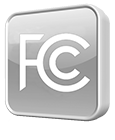 Yesterday it only took delivering paltry 4Mbps download speeds to be able to claim you were offering broadband service.
Yesterday it only took delivering paltry 4Mbps download speeds to be able to claim you were offering broadband service.
Not anymore.
The FCC voted today to redefine the term "broadband" - now requiring mobile and fixed internet service providers to deliver at least 25Mbps download speeds and 3Mbps upload speeds to meet the new definition.
Broadband deployment in the United States – especially in rural areas – is failing to keep pace with today’s advanced, high-quality voice, data, graphics and video offerings, according to the 2015 Broadband Progress Report adopted today by the Federal Communications Commission.
Reflecting advances in technology, market offerings by broadband providers and consumer demand, the FCC updated its broadband benchmark speeds to 25 megabits per second (Mbps) for downloads and 3 Mbps for uploads. The 4 Mbps/1 Mbps standard set in 2010 is dated and inadequate for evaluating whether advanced broadband is being deployed to all Americans in a timely way, the FCC found.
Industry lobbying groups argued strongly against changing the definition, but Ars Technica reports that FCC Chairman Tom Wheeler called them out on some serious hypocrisy in his remarks announcing the ruling:
“Let’s parse out what they say in their lobbying with us and what they say when they’re talking to consumers,” said Wheeler, a former cable and wireless industry lobbyist himself. While Verizon told the FCC that consumers are satisfied with 4Mbps/1Mbps and that "a higher benchmark would serve no purpose,” they push customers to buy much faster speeds, which cost more, Wheeler pointed out.
“Somebody is telling us one thing and telling consumers another."
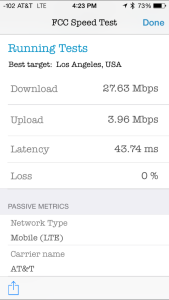
For mobile users - LTE in general often already meets the new definition of broadband, but services will no longer be able to claim they are offering "mobile broadband" if they are throttling speeds slower than the new definition, or if they are regularly having trouble maintaining broadband speeds due to network congestion.
To help keep tabs on providers, the FCC has created a free Speed Test app for both iOS and Android that anonymously gathers up data on upload and download speeds, latency and packet loss.
Do your part, and submit speed tests when you are able. The more data the FCC has, the more pressure they can keep applying to drive carriers to increase speeds and coverage to more parts of the country.
Now if only campgrounds and RV Parks were being held to the same standard for their WiFi speeds...
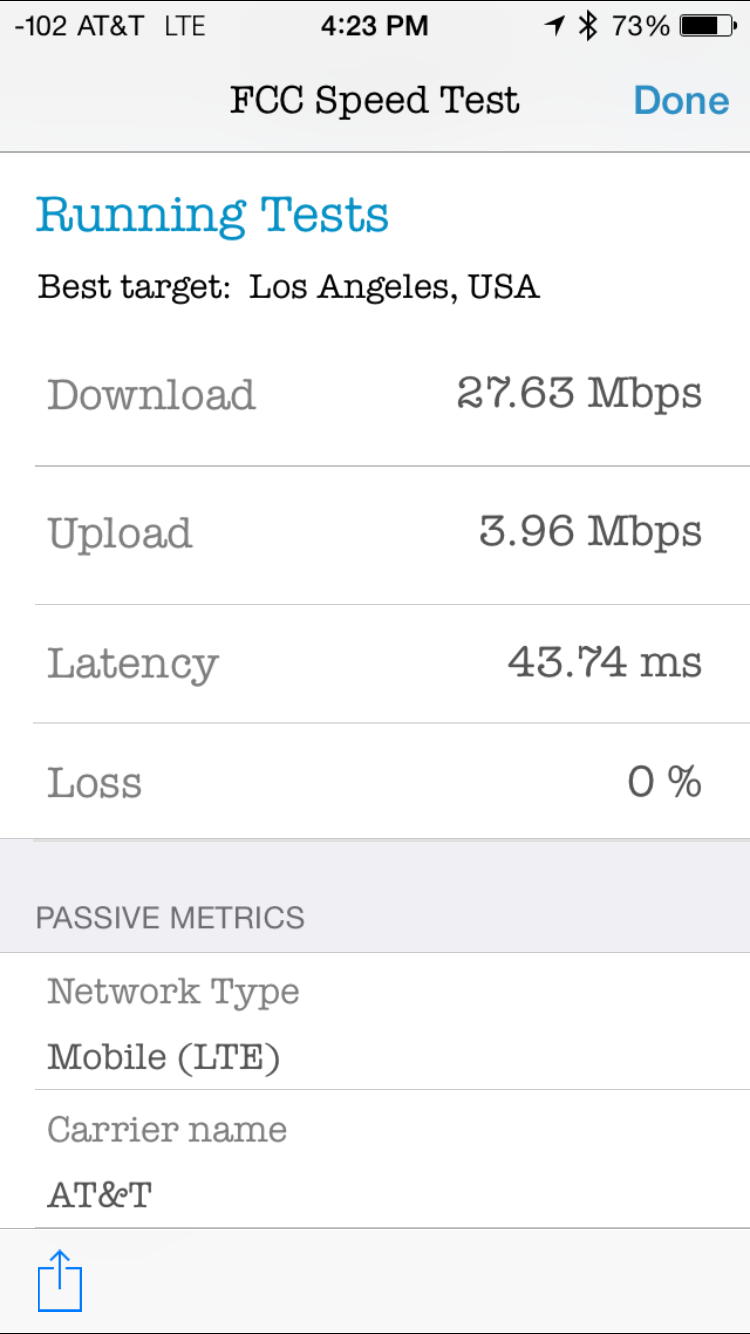

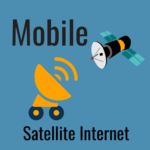


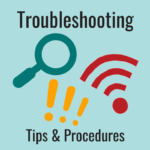

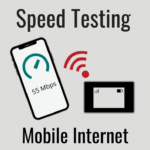
 Mobile Internet Resource Center (dba Two Steps Beyond LLC) is founded by Chris & Cherie of
Mobile Internet Resource Center (dba Two Steps Beyond LLC) is founded by Chris & Cherie of